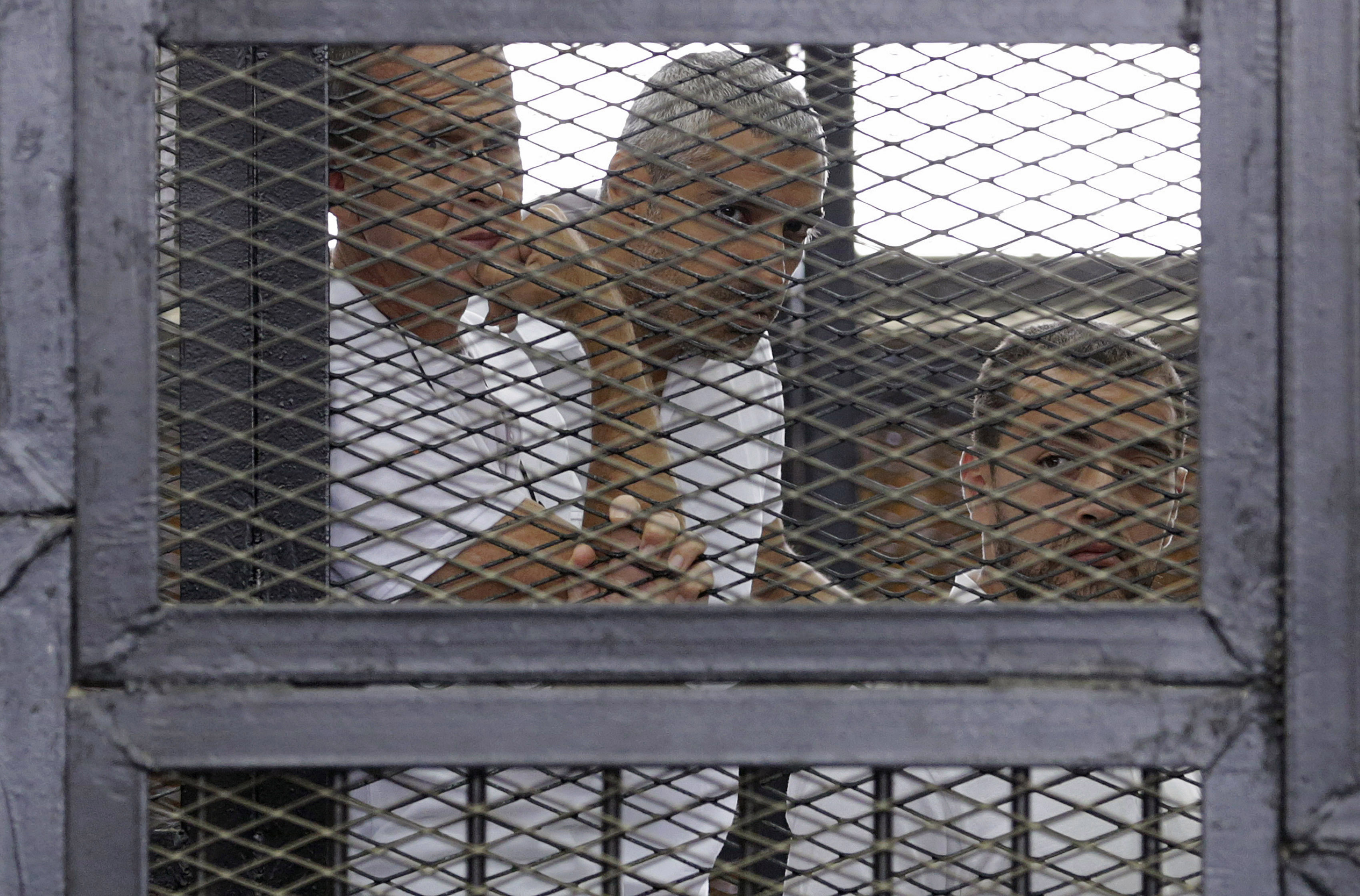Egyptian authorities should not allow a widely criticised trial against three Al Jazeera journalists to do any more harm and should drop all charges immediately, the International Press Institute (IPI) said today.
Peter Greste, an Australian who works for Al Jazeera English, and his colleagues Mohamed Fahmy and Baher Mohamed are due to appear in court tomorrow morning, where observers fear they will be convicted on charges of airing false news and aiding the Muslim Brotherhood, an organisation that has been banned in Egypt.
Prosecutors are seeking 15-year prison sentences against the three journalists, despite arguments by their attorneys that prosecutors have presented no incriminating evidence in proceedings that defence lawyers have repeatedly labelled ‘farcical’.
“Time is running out,” IPI Executive Director Alison Bethel McKenzie said. “Given the circumstances surrounding this trial and the lack of evidence presented, Egypt should drop these charges before they do any further damage to the country’s reputation and to the health and safety of the journalists wrongfully detained.”
She continued: “Egyptian voters – recognising the fundamental role the news media plays in safeguarding democracy and holding authority to account – amended the country’s Constitution in January to strengthen guarantees of freedom of the press and expression, and to ban government interference in the news media. We urge authorities to respect the message sent by Egypt’s citizens and to heed calls by the international community. This case must be ended immediately.”
Greste, Fahmy and Mohamed have been behind bars since Dec. 29, when security agents detained them in the Cairo hotel rooms from which the journalists were working. Last week, an Egyptian court extended the detention of their colleague – journalist Abdullah Elshamy of Al Jazeera’s Arabic channel, who has been detained without charge since Aug. 14 in a separate case, and who has been on a hunger strike – for another 45 days.
IPI and international observers have long pressed Egypt for the release of those four and other Egyptian journalists currently imprisoned. An IPI delegation conducted a five-day emergency mission to Egypt in January, starting three years to the day after the start of Egypt’s Arab Spring revolution, to address concerns that journalists were becoming an unacceptable target – if not outright scapegoats – for the tumultuous politics that have engulfed the country in the past three years.
In a report issued in February, “Journalists under siege”, IPI called on Egypt’s interim government and future leaders to free journalists and to improve safety for media workers. Noting voters’ approval of the new Constitution, the report urged the government to “state publicly that it will abide by the letter and spirit of the [January 2014] Constitution – including Articles 70, 71 and 72 that provide guarantees of press freedom, freedom of publication and the independence of the news media….”
The report also urged Egypt’s president to:
– Appoint an independent prosecutor to investigate reports that police have beaten detained journalists, violated their rights of access to legal counsel and illegally confiscated and/or destroyed media equipment; and
– Launch training for police and armed forces personnel to recognise accredited journalists as neutral non-combatants.
Click here for a copy of the “Journalists under siege” report.



